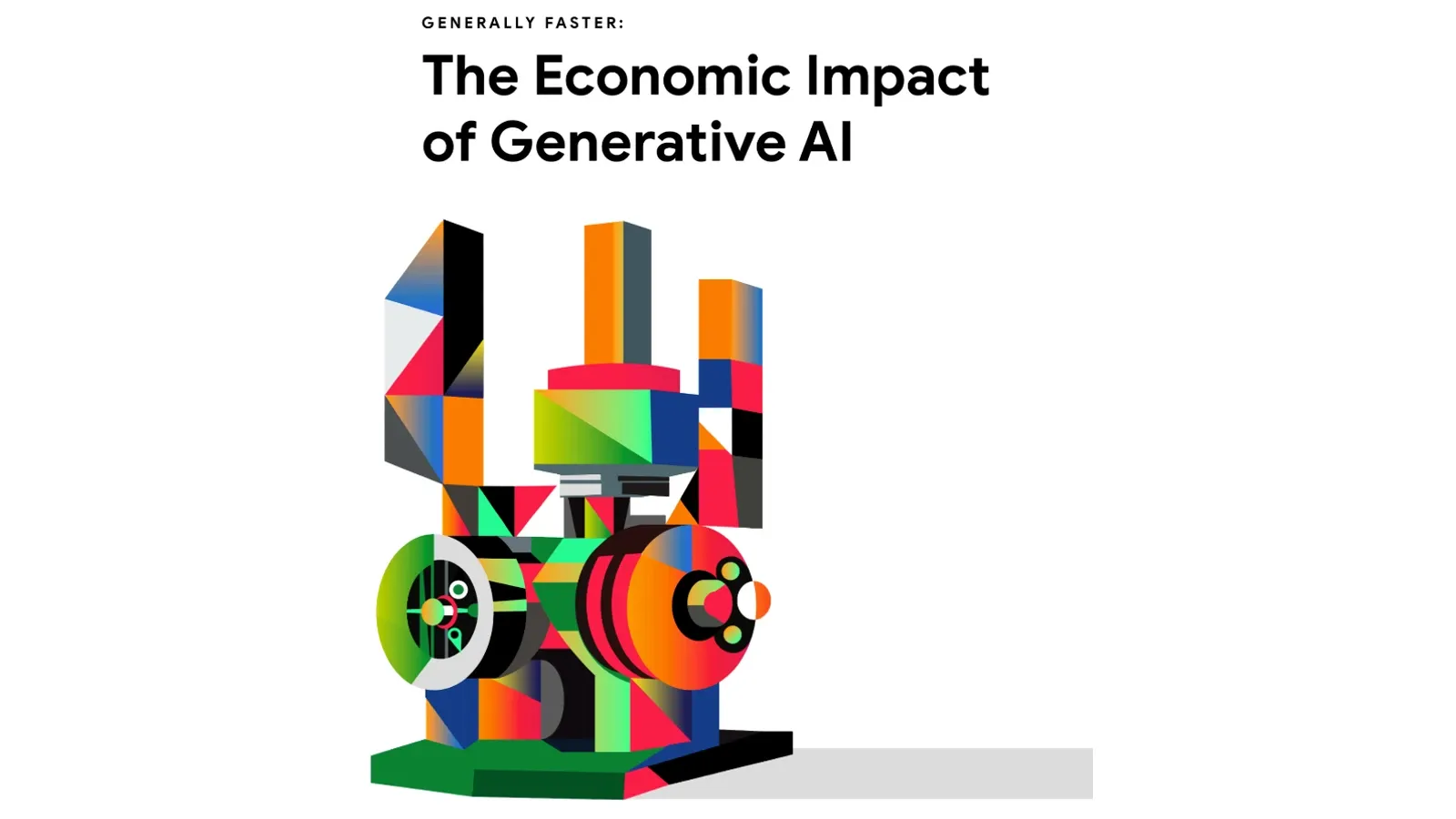Study: Generative AI poised to accelerate economic growth, create new jobs
Released on April 25, 2024, the report highlights the potential of this technology to act as a powerful economic driver.

A new report from Google, by Andrew McAfee, inaugural Technology & Society Visiting Fellow, explores the potential economic impacts of generative AI.
Released on April 25, 2024, the report highlights the potential of this technology to act as a powerful economic driver.
The report classifies generative AI as a rare type of technology - a "general-purpose technology" with the potential to significantly transform economies and societies. According to the report, generative AI has the potential to be as impactful as historical innovations like the steam engine and electrification.
The report estimates that generative AI could significantly boost productivity across various sectors. The research suggests that nearly 80% of jobs in the U.S. economy could see at least a 10% increase in task efficiency through the use of generative AI. This efficiency gain is attributed to the speed and ease of use of generative AI, facilitated by its internet accessibility and natural language interface.
The report predicts that these productivity gains will translate to overall economic growth, with the effects accelerating as businesses and individuals develop complementary innovations that leverage generative AI's capabilities.
While acknowledging potential job displacement in certain areas due to automation, the report argues against widespread technological unemployment. The report cites historical trends associated with general-purpose technologies, highlighting that economic growth driven by these innovations has historically been accompanied by strong labor demand. However, the report acknowledges a shift in demand, with new job opportunities arising in fields yet to be defined. The study points out that over 85% of U.S. job growth since 1940 has occurred in entirely new occupations.
The report acknowledges the need for prompt and effective reskilling efforts to address the rapid changes AI will bring. Interestingly, the report identifies generative AI itself as a potential tool to facilitate reskilling. The report highlights generative AI's unique ability to personalize learning experiences and improve the performance of entry-level workers, potentially mitigating wage inequality.
The report concludes by drawing parallels between historical general-purpose technologies and generative AI. The study suggests that generative AI has the potential to influence which companies and countries lead various industries in the future.
Overall, the report by Andrew McAfee offers a promising outlook on the economic impact of generative AI. While acknowledging potential challenges, the report emphasizes the technology's potential to drive productivity, economic growth, and job creation in new and evolving fields.
Implications for marketers
Marketers should closely monitor the development and adoption of generative AI. Understanding how this technology is transforming different industries can inform marketing strategies. For example, marketers may explore how generative AI can be used to personalize customer experiences, automate content creation, or optimize marketing campaigns. Staying informed about the potential impact of generative AI on the workforce can also help marketers understand future consumer trends and preferences.

